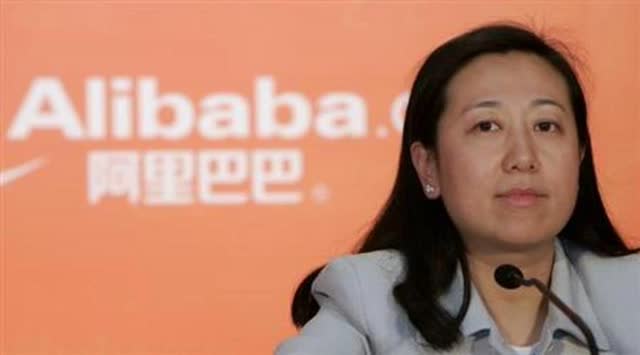Alibaba Won't Be Delisted (I Think)
by From Growth to ValueSummary
- The Senate passed bill S.945, which is generally marked as the bill that will delist Chinese companies.
- If the company doesn't comply for three years in a row, it could be delisted.
- Alibaba addressed the issue on the conference call and said that it already followed GAAP rules since 1999 and that it would do everything to comply with the law.
- Chinese law prohibits foreign institutions like Peekaboo to look into the books of its companies.
- I think there's a way to circumvent the two opposing laws, the American and the Chinese, if the bill would become a law.
Introduction
Forums, Facebook (FB) groups, discussion boards, comment sections and business media have all been filled with comments and opinions around S.945, the bill that passed the Senate and is generally marked as the one that will delist Chinese companies.
The examples that are given to illustrate affected Chinese stocks are almost always Alibaba (BABA) and Baidu (BIDU). I'm not a shareholder of Baidu, and I even wrote an article in January why I won't invest in the company. Baidu would be in the early stages of moving its stock to Hong Kong.
I am a shareholder of Alibaba, and I know that a lot of investors on this platform are shareholders too. So, I researched to know if the delisting of Alibaba is a real threat or just a nothingburger. Let's first look at the bill itself.
The Bill That Passed The Senate
First, let's take a closer look at what's inside S.945. The Senate has voted a bill that was about foreign stocks, not just Chinese, to begin with, although Chinese stocks are the primary aim. Most media portrayed it as if the bill, if it became law, would probably delist all Chinese stocks from American stock exchanges. But we all know that the news outlets sometimes jump to conclusions. Let me give you a quick breakdown to separate the fuzz from the substance.
There are two parts to the bill, which was first introduced by Senators John Kennedy (R.) and Chris Van Hollen (D.) in March 2019. The first part of the bill wants to make sure that no publicly traded company is owned or controlled by a foreign government.

(Senators Kennedy and Van Hollen. Source)
The second part is that the Public Company Accounting Oversight Board must be allowed to access the audits of the foreign company. PCAOB is about the dullest name that you can get, and that's probably why it got its nickname: Peekaboo. It's an organization that audits the audits of companies. It was established after the Enron and Worldcom frauds, which couldn't be prevented by the audits themselves. The bill stipulates that if a foreign company doesn't allow this Peekaboo audit for 3 years in a row, the company will be delisted.
The reason why Chinese companies are more mentioned than other foreign companies is that the Chinese government doesn't allow that a foreign (American) institute looks at the audits of Chinese companies.
The next steps
There are a few things to know here. First, this is not a law yet, but a bill. It has to pass the Congress first. The bill was introduced by senators from both parties and passed the Senate without objections. This would make you think that the voting of the bill in Congress is nothing but a formality.
But resistance there is growing a bit because the President is focusing on blaming China for the pandemic, and rumors say that some Democrats (who have the majority in the Congress) are starting to have doubts about the bill because it could be sold as a victory for the President. With elections coming closer, that might become an issue.
Besides that, the removal of all Chinese companies could hit individual and institutional investors hard. The combined value of the companies is $1.8 trillion, and China is one of the best growth markets in the world. So, I can imagine that funds and investment banks have sent their most experienced lobbyists to Capitol Hill to prevent the acceptance of the bill.
My personal opinion is that the bill will pass because nobody wants to be seen as pro-China in this climate. If the bill passes Congress, the only thing that's needed before it becomes a law is a signature from President Trump.
Alibaba reacts
On Friday, just before the long weekend, Alibaba issued its earnings. On the conference call, the bill was, of course, a subject. This is the first thing that Maggie Wu, Alibaba's CFO, had to say about the bill on the conference call:
We will closely monitor the development of this bill and I think it’s important for investors to understand Alibaba’s practice and issues raised under this proposed legislation.

(Maggie Wu, Alibaba's CFO. Source)
She further stressed that there is a framework that already exists to inspect the audit companies that work in China and that there are ongoing talks between the SEC, the DSRC (the Chinese version of the SEC), Peekaboo and the Big Four accounting firms (Deloitte, Ernst & Young, KPMG and PwC). The topic of the conversation is how Chinese companies can comply with Chinese law (that prohibits foreign oversight) and issue reliable, controllable information for international investors.
And Maggie Wu went on, saying:
Number two, Alibaba’s financial statements are prepared in accordance with U.S. GAAP and since our inception in 1999, we have been audited by PwC Hong Kong, PwC Hong Kong is the local affiliate of the worldwide PwC’s firm and its auditing standards are overseen by the PwC national office in the United States. The integrity of Alibaba’s financial statements speaks for itself. We have been an SEC filer since 2014 and hold ourselves to the high standards of transparency.
This is important information: Alibaba has been using GAAP since 1999, and it has been audited by PwC Hong Kong all those years. As a general rule, Hong Kong has a more credible reputation than China.
Maggie Wu also referred to trust, one of the core values of Alibaba, and to the fact that the company has always looked at the long term, implying, not incorrectly, that fraud could bring short-term wins but is, of course, bad for a company over the long term.
Wu concluded with probably the most important statement:
Given the above, we will endeavor to comply with any legislation whose aim is to protect and bring transparency to investors who buy securities of U.S. stock exchanges.
Let's look at the facts
If you let your instincts take over, you'd probably think that Alibaba shareholders had better run for the hills. But if you look at the facts, the picture looks much better for Alibaba. The company is definitely not owned by the Chinese government, and the financial statements are already according to the GAAP rules.
As I wrote earlier, the Chinese government doesn't allow that a foreign institute looks at the audits of a Chinese company. But there might be a solution to this problem - the VIE structure of Alibaba (and others). Officially, the shares that are traded on the NYSE are not those of a Chinese company but those of an Alibaba shell on the Cayman Islands. Therefore, I think it will be possible for the company to comply with the demands if this bill becomes a law. And that would be good for everybody. Alibaba could have more credibility and investors more safety and protection.
Conclusion
Although this bill could instill fear in investors if it becomes a law, I think the content is good for everybody, both Chinese companies and the American investor. Nobody can't be against more shareholder protection, right? I think Alibaba is in a good position to shrug this off. It already follows the GAAP rules since 1999, and it will do everything to comply with the law. Its VIE structure might be a way to solve the problem of two opposing laws.
If you like this article, feel free to hit the "Follow" button next to my name.
In the meantime, keep growing!
Potential Multibaggers focuses on finding and holding the long-term winners that could be life-changing. The first Potential Multibagger became a tenbagger in just 3 years.
Potential Multibaggers is not for those who trade in and out of stocks. It's a place where growth-oriented long-term investors feel at home.
The results are there, with an average of 83.85% of alpha per stock pick versus the S&P500 (as of May 25, 2020).
At Potential Multibaggers, you get a new Potential Multibagger every month, monthly new portfolios, exclusive updates, several other live portfolios, a watchlist and much more. Start with a free trial now!
Disclosure: I am/we are long BABA. I wrote this article myself, and it expresses my own opinions. I am not receiving compensation for it (other than from Seeking Alpha). I have no business relationship with any company whose stock is mentioned in this article.